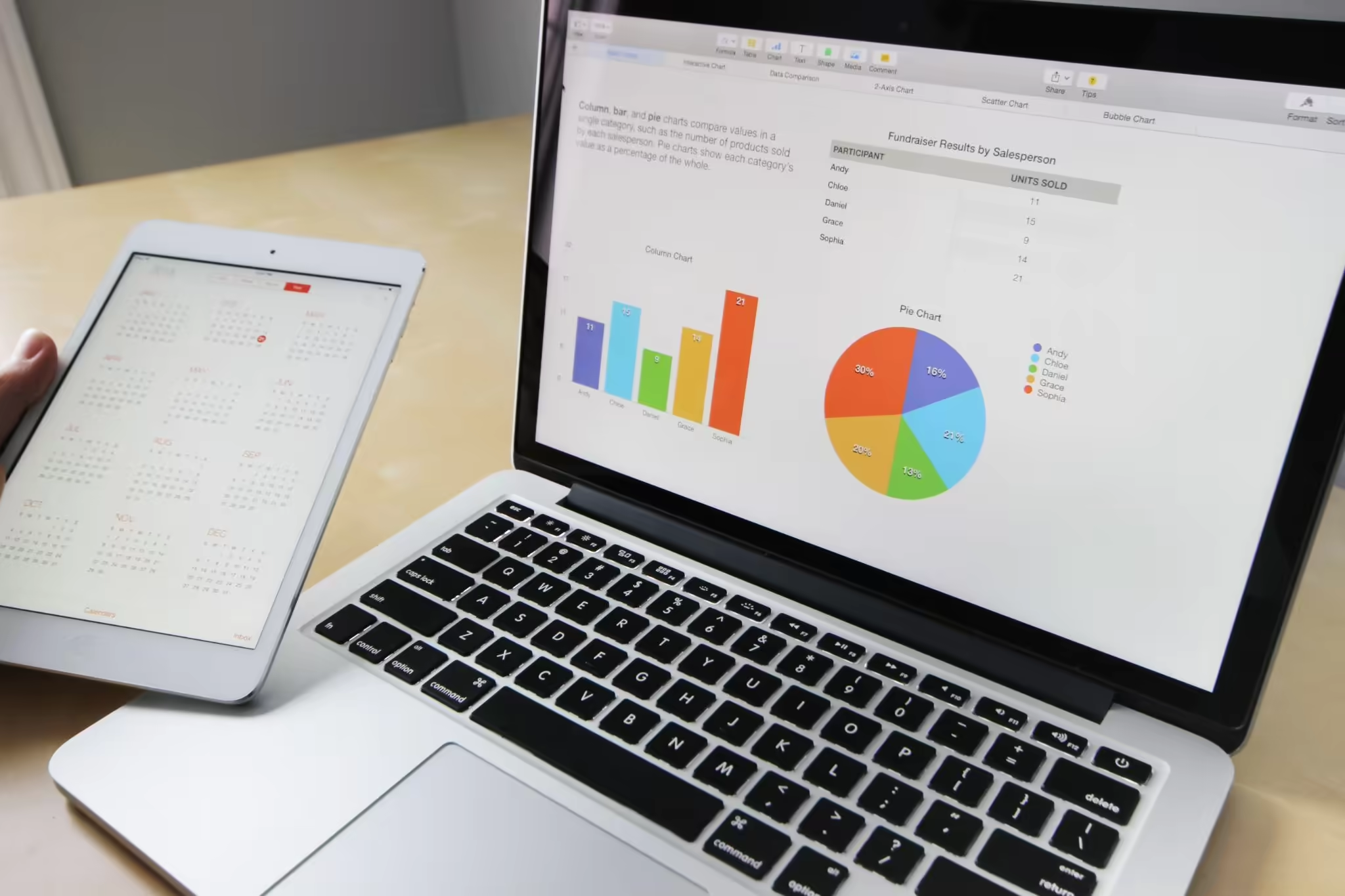Businesses now have access to previously inaccessible data depositories. Fortunately, technology provides a powerful means of making sense of these data points and converting them into insights and practical business intelligence KPIs that firms can use when making decisions in real-world business settings.
Research has found that data analytics makes business decision-making 5x faster. Business Intelligence and Data Analytics enable businesses to streamline the arduous task of compiling information on operations, customers, and product quality.
Learn more about how business intelligence and analytics can benefit your business:
What Is Business Intelligence?
Business intelligence solutions delve deeply into data sets, using analytical features to extract relevant information about anything. It entails collecting, storing, and analyzing data to uncover patterns, trends, or potential problems. It combines business analytics, data mining, visualization, tools and infrastructure, and best practices to make more data-driven decisions.
With BI, a company can analyze multiple data sources, limit searches to specific criteria, run queries, and create reports to understand outcomes better. If you need help leveraging Business Intelligence and Analytics, a partner with BI experts can help streamline the process.
How Can Business Intelligence and Data Analytics Help Organizations?
Many firms have a lot of data they don't know how to use or understand. Business analytics experts learn how to collect, store, and analyze large amounts of data at the enterprise level. As a result, business analysts have the skills required to assist organizations in using data analytics to improve the performance of their businesses. One of the key applications of business analytics is in the creation of competitive intelligence reports, which provide organizations with valuable insights into the strategies, strengths, and weaknesses of their competitors, enabling them to make data-driven decisions and gain a competitive advantage in their respective markets.
Find below a list of five critical ways that businesses can use data analytics to improve their results:
1. Helps Businesses Discover New Opportunities
Data analysis typically increases productivity and uncovers new business opportunities, such as untapped client niches. As a result, growth and profitability become limitless and intelligence-based.
Many professionals can identify short-term trends but struggle to anticipate long-term business challenges. Data analytics-based computer models help businesses identify client purchasing trends and highlight or update offerings. Analytics can identify potential sources of concern for your company's profitability, such as production, customer service, or personnel deficiencies.
2. Helps with Consumer Research to Improve Service
In the future, a robust data analytics approach will be required for customer service. Monitoring consumer behavior to improve user experiences (UX) and customer experiences are one of the most common applications of data analytics to improve business outcomes.
According to Businesses Investopedia, data analytics aids in enterprise performance optimization. A corporation can use data analytics to improve business decisions and track consumer preferences and trends to develop new and improved goods and services. With business analytics, you have the data to forecast customer satisfaction, personalize user experiences, and introduce new products and services that consumers will enjoy.
3. Makes Business Process More Efficient
Business intelligence solutions shorten the time and resources needed to manually sort through data by enabling quicker data retrieval, storage, and organization. In essence, BI streamlines corporate operations by optimizing business processes.
Business executives employ data analytics to pinpoint ineffective internal procedures and design new, streamlined workflows that boost operational effectiveness. Data analytics enhances company management by helping managers evaluate the efficacy of existing workflows, analyze process outcomes, automate new workflows, and continuously improve them. Data also enables leaders to assess whether processes are cumbersome, expensive, or challenging. Leaders may speed up all digital initiatives by switching from slow manual operations to optimized ones.
4. Track the Performance of Marketing Campaigns
Data must drive marketing efforts from planning to implementation. Teams establish key performance indicators (KPIs) to determine success metrics before launching a data-driven marketing campaign. The next step for marketing teams is to collect descriptive information on their target market, distribution options, market trends, etc. To find out which textual and visual messages are more effective with their target audience, marketing teams might do A/B tests on advertisements. Finally, marketing professionals keep an eye on and evaluate the campaign's outcomes to pinpoint its strengths and weaknesses.
5. Enables Data-Driven Decision Making
Businesses can use data analytics to help them make better decisions and save money. Prescriptive analytics can suggest how the company should respond to these changes, whereas predictive analytics can forecast what will happen due to these changes. Over 75% of respondents in a survey of data-leading companies said their decision-making was always data-driven.
A business, for example, can use a model to forecast how pricing or product offerings changes will affect client demand. A firm may make changes to product offerings to assess the validity of the hypotheses generated by such models. After collecting sales data on the modified items, businesses can use data analytics tools to evaluate the performance of the adjustments and visualize the results. This will help decision-makers decide whether or not to implement the changes across the company.
In Summary
There's a lot of business analysis businesses rarely have time to conduct on their own, but when they do, whether in-house or with outside assistance, the benefits to the company can be significant. They see gains in operational effectiveness, employee output, financial health, and the discovery and development of new sources of revenue. Analytical projects can assist in identifying cost-cutting or profit-boosting opportunities. In a world where intelligent data use is a competitive advantage, those unable to analyze their data should chart a course to do so.



